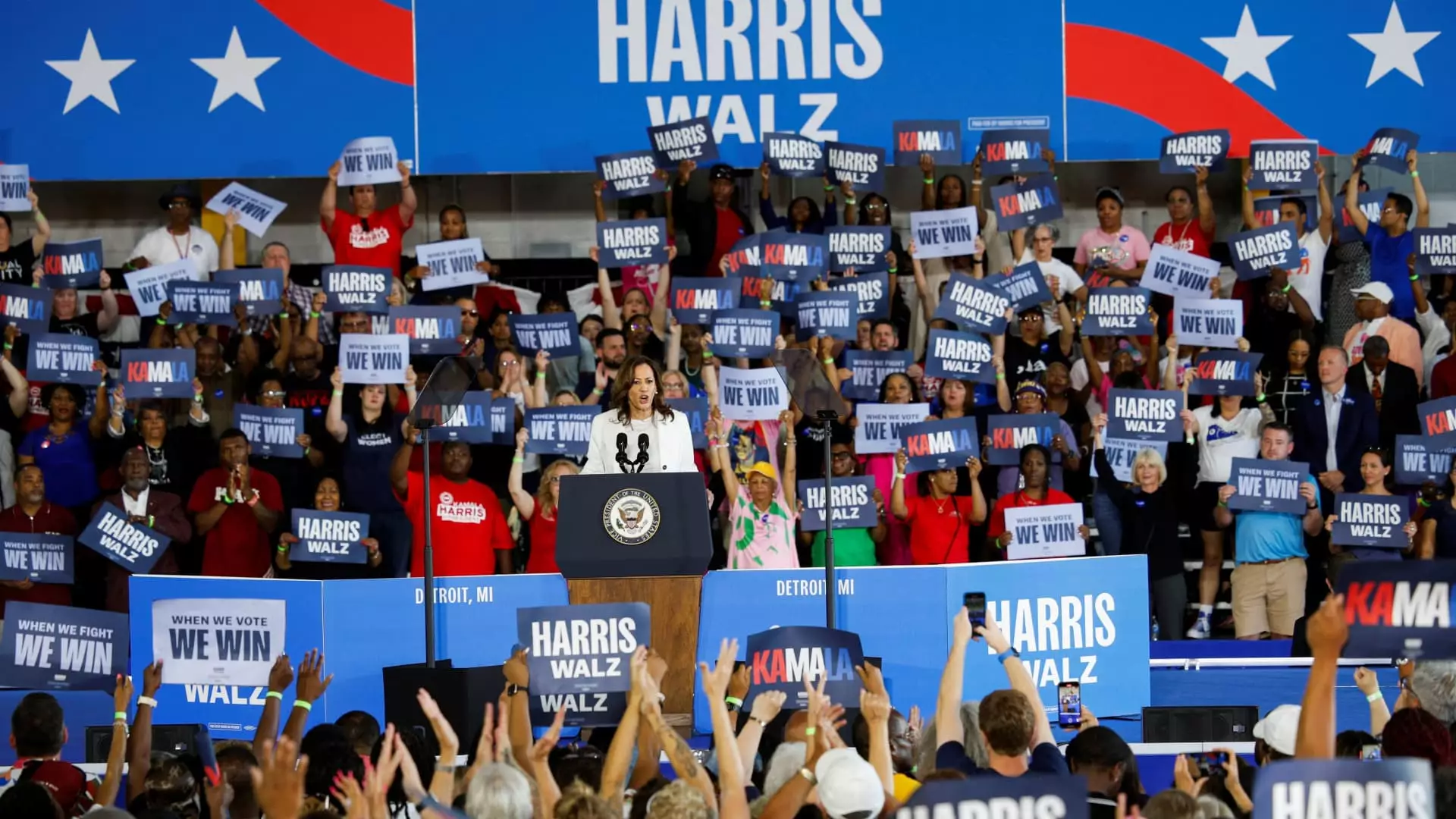Former President Donald Trump made baseless claims over social media, falsely accusing Vice President Kamala Harris of fabricating images of crowd sizes at her rallies using AI technology. Trump alleged that there was no one at the airport to greet Harris, and the image of a large crowd was digitally altered to create an illusion of support. This unfounded conspiracy theory was propagated on Truth Social, Trump’s social media platform, and echoed by some MAGA Republican commentators.
In response to these accusations, the Harris campaign refuted the claims, stating that the image in question depicted a real 15,000-person crowd gathered for a rally in Michigan. The campaign also highlighted the stark difference in campaign schedules between Harris and Trump, with Harris maintaining a rigorous schedule of rallies and events in swing states, while Trump’s campaign was notably lighter in comparison.
The use of advanced AI tools has made it easier to spread misinformation during the election cycle, blurring the lines between reality and conspiracy theories. Trump’s unfounded allegations against Harris demonstrate how false claims can be amplified through social media platforms, reaching a wide audience and undermining the democratic process.
This incident was not an isolated one, as Trump has a history of using social media to launch personal attacks against political opponents. In addition to the baseless claims about the crowd sizes at Harris’ rallies, Trump also accused her of copying his policy proposals, further showcasing his inclination towards inflammatory rhetoric and unsubstantiated allegations.
The contrasting campaign strategies of Harris and Trump highlight a fundamental difference in approach. While Harris has been actively engaging with voters and holding rallies across battleground states, Trump has been more reserved in his campaigning, with only one rally held in August and a reluctance to intensify his travel schedule until after the Democratic National Convention.
Trump’s conspiracy theories about Kamala Harris serve as a reminder of the dangers of misinformation and the need for critical thinking in the digital age. By analyzing and debunking false claims, we can strive to uphold the integrity of democratic processes and combat the spread of disinformation in political discourse.

Leave a Reply